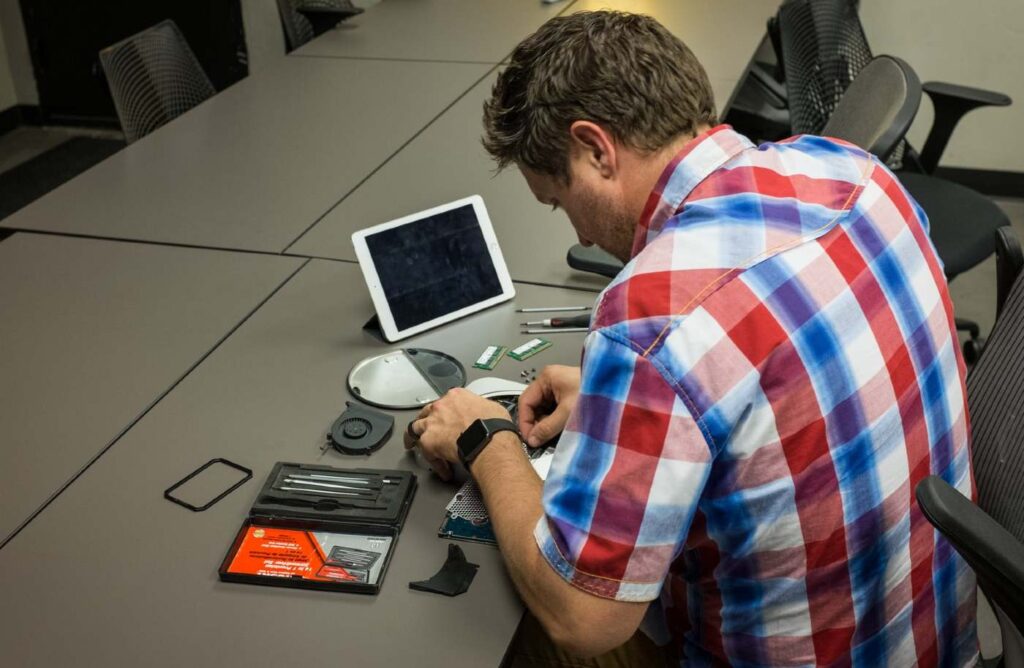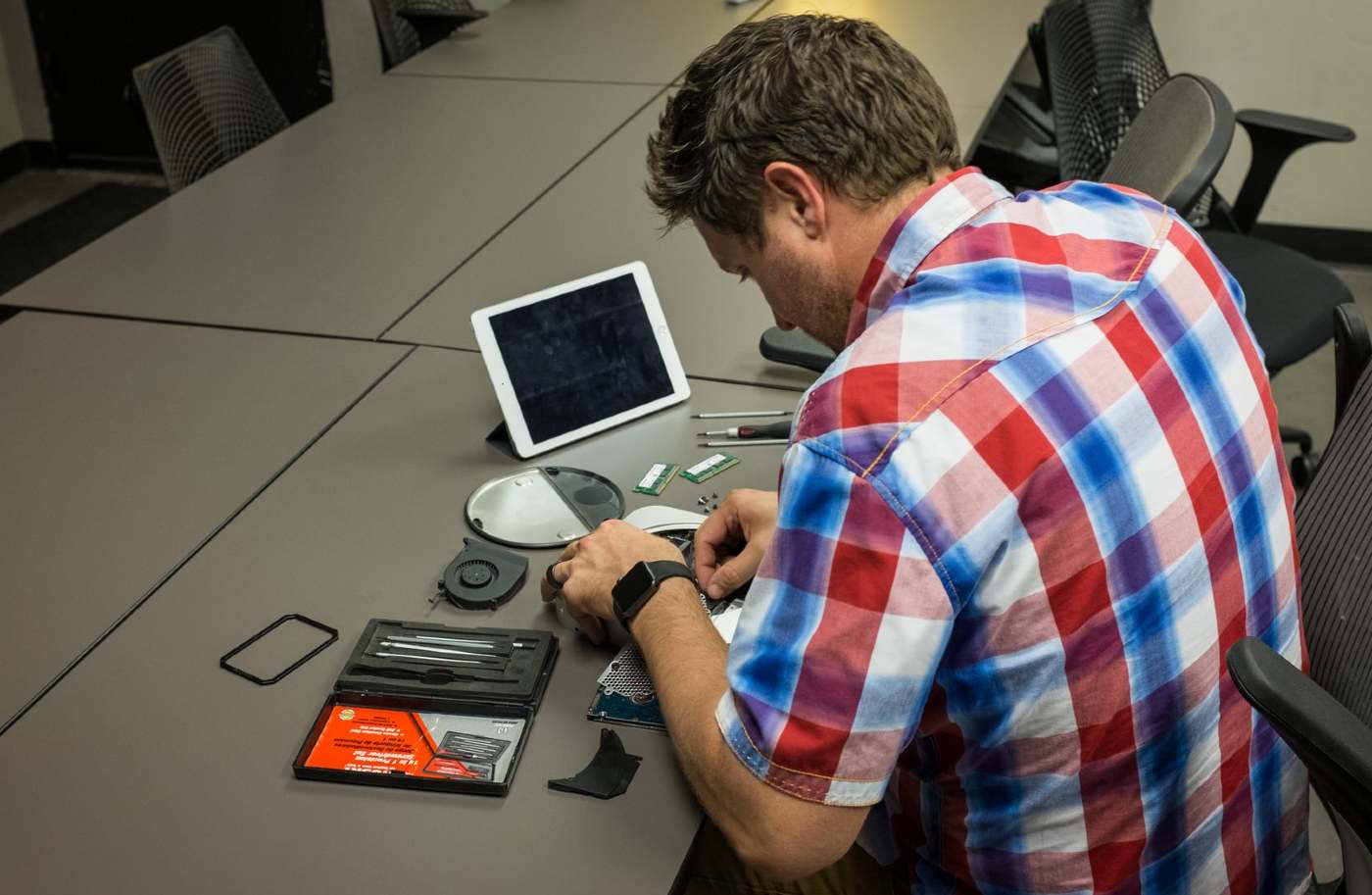The European Parliament plans to boost sustainability by promoting reuse and repairs of phones, laptops, tablets, and other electronics—and by tackling practices that shorten the lifespan of such products.

France is reported to begin rolling out ‘repairability tags’ on devices from January 2021, with some other European countries following suit after that.
The resolution on a more sustainable Single Market was adopted on November 25 with 395 in favor, 94 against, and 207 abstentions.
This means Members of the European Parliament (MEPs) have called on the European Commission to grant consumers a “right to repair” by making repairs more appealing, systematic, and cost-efficient, whether by extending guarantees, providing guarantees for replaced parts, or better access to information on repair and maintenance.
It means MEPs insist on increasing support for second-hand goods markets, call for measures to tackle practices that shorten the lifetime of a product, and endorse sustainable production.
In a statement, MEPs have also reiterated the need for a common charger system to reduce electronic waste and want products to be labeled according to their durability (e.g. a usage meter and clear information on the estimated lifespan of a product).
Remove obstacles that prevent repair, resale, and reuse
According to a survey, 77% of EU citizens would rather repair their devices than replace them; 79% think that manufacturers should be legally obliged to facilitate the repair of digital devices or the replacement of their individual parts.
RELATED: Low Ambient Light Indoors Can Be Harvested to Charge Electronics
To encourage sustainable business and consumer choices, MEPs—through this resolution—are saying they push for more sustainable public procurement as well as responsible marketing and advertising.
For example, when environmentally friendly claims are made in advertisements, common criteria should be applied to support such a claim—similar to obtaining ecolabel certifications.
The resolution also calls for the role of the EU ecolabel to be boosted so that it is used more by industry and to raise awareness among consumers.
Finally, the advisory text proposes new rules for waste management and the removal of legal obstacles that prevent repair, resale, and reuse. This will also benefit the secondary raw material market. From here, it’ll be up to the European Commission to issue actual proposals based on this report.
Source: European Parliament
Fix Up Your Social Media Feed By Sharing The Good News With Your Friends…




















